Gout »
Uric Acid
How to submit an article:
- Registered users can submit any published journal article that has a unique DOI (Digital Object Identifier) name or link to Research Hub.
- For example, you can paste the full DOI link:
https://doi.org/10.1109/5.771073or just the DOI name:10.1109/5.771073into the field above and click submit. - The person who is first to submit a valid article to Research Hub will forever be credited for it, and every article submission earns you +6 Research Points.
Published research studies are articles that present the findings of original research that has undergone a peer-review process and has been made publicly available in scholarly journals, books or other media.

Variations in nutritional quality and fatty acids composition of sardine (Sardina pilchardus) during canning process in grape seed and olive oils
2022 Aug 31 Journal of Food Science and Technology Bouriga N, Rjiba Bahri W, Mili S, Massoudi S, Quignard JP, Trabelsi M
Experimental Study Grape Seed Oil SardineUsing grape seed oil in the sardine canning process enhances the lipid nutritional quality and increases the fat, protein, and ash contents.
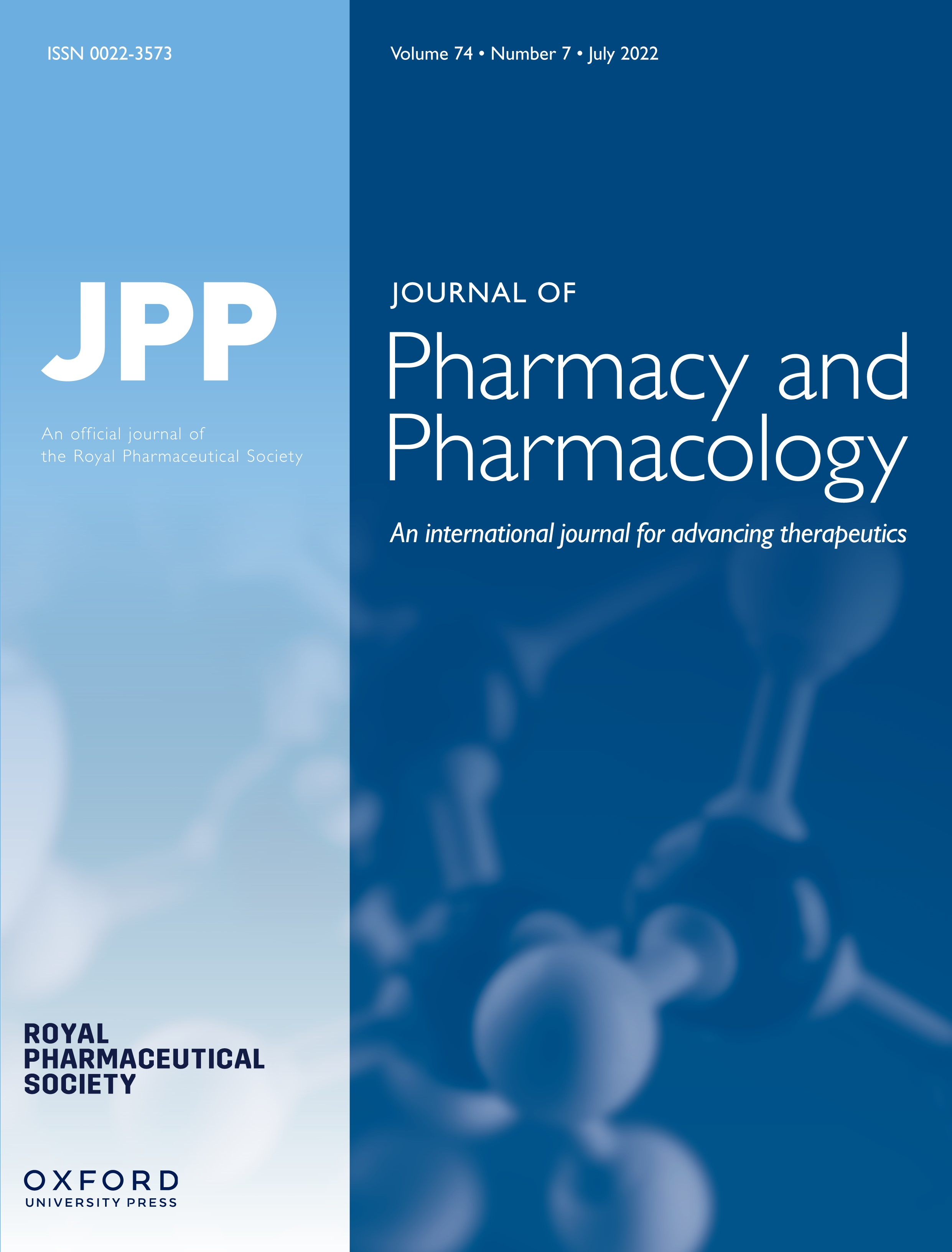
Phytochemicals in traditional Chinese medicine can treat gout by regulating intestinal flora through inactivating NLRP3 and inhibiting XOD activity
2022 May 30 Journal of Pharmacy and Pharmacology Liu ZQ, Sun X, Liu ZB, Zhang T, Zhang LL, Wu CJ
Intestinal Flora GoutTraditional Chinese medicine exhibits fewer side effects while effectively controlling inflammation and serum uric acid in gout patients.
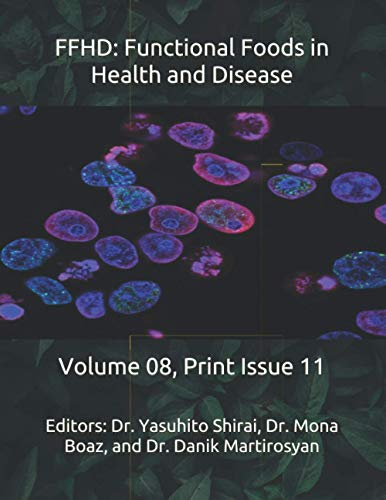
Effects of luteolin-rich chrysanthemum flower extract on purine base absorption and blood uric acid in Japanese subjects
2022 Jan 10 Functional Foods in Health and Disease Takara T, Yamamoto K, Suzuki N, Yamashita S, Iio S, Kakinuma T, et al.
Randomised Controlled Trial Uric Acid Chrysanthemum LuteolinA daily dose of Chrysanthemum flower extract was found to significantly reduce serum uric acid levels, potentially improving hyperuricemia.
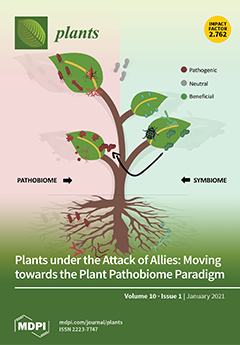
Hypouricemic Effects of Chrysanthemum indicum L. and Cornus officinalis on Hyperuricemia-Induced HepG2 Cells, Renal Cells, and Mice
2021 Aug 13 Plants Kim OK, Yun JM, Lee M, Kim D, Lee J
Network Pharmacology Animal Study Chrysanthemum Uric Acid Hypouricemic Effects Cornus OfficinalisA combination of extracts from chrysanthemum were found to be more effective in treating hyperuricemia and potentially developing anti-hyperuricemic functional foods.
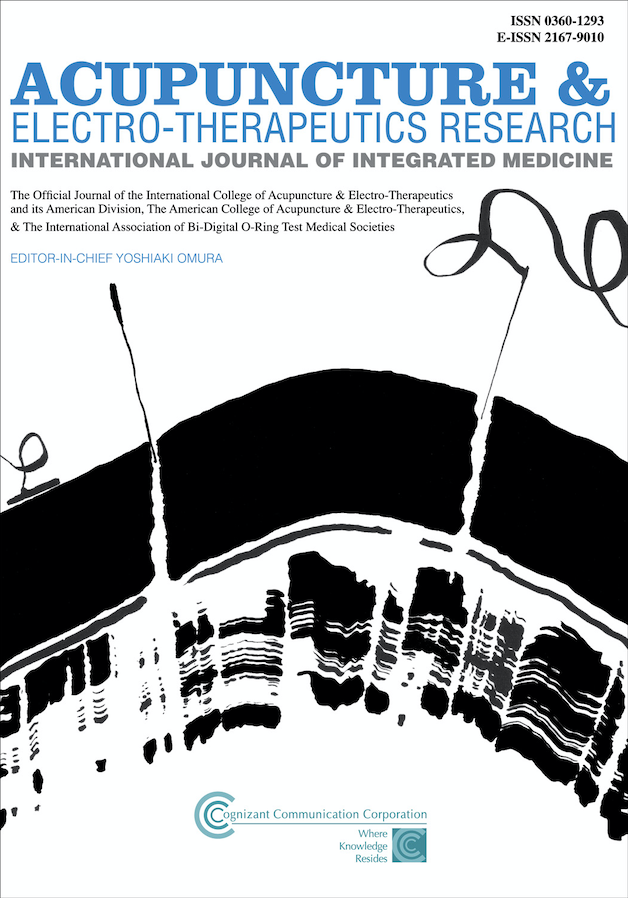
Single Acupuncture Treatment Can Reduce the Level of Uric Acid and Alleviating Pain in Gouty Arthritis, a Meta-Analysis
2021 Apr 01 Acupuncture & Electro-Therapeutics Research Liu P, Deng L, Lv Y, Xu H, Zhao H, Chen X
The results show that single acupuncture is more effective and safer than Western medicine in the treatment of gouty arthritis.
Meta-Analysis AcupunctureResearch insights are moderated by the Research Hub team and offer an at-a-glance overview of interesting research findings.

2022 Journal of Food Science and Technology
Using grape seed oil in the sardine canning process enhances the lipid nutritional quality and increases the fat, protein, and ash contents.
Experimental Study Grape Seed Oil Sardine
Variations in nutritional quality and fatty acids composition of sardine (Sardina pilchardus) during canning process in grape seed and olive oils
Bouriga N, Rjiba Bahri W, Mili S, Massoudi S, Quignard JP, Trabelsi M

2022 Journal of Pharmacy and Pharmacology
Traditional Chinese medicine exhibits fewer side effects while effectively controlling inflammation and serum uric acid in gout patients.
Gout Intestinal Flora
Phytochemicals in traditional Chinese medicine can treat gout by regulating intestinal flora through inactivating NLRP3 and inhibiting XOD activity
Liu ZQ, Sun X, Liu ZB, Zhang T, Zhang LL, Wu CJ

2022 Functional Foods in Health and Disease
A daily dose of Chrysanthemum flower extract was found to significantly reduce serum uric acid levels, potentially improving hyperuricemia.
Randomised Controlled Trial Chrysanthemum Luteolin
Effects of luteolin-rich chrysanthemum flower extract on purine base absorption and blood uric acid in Japanese subjects
Takara T, Yamamoto K, Suzuki N, Yamashita S, Iio S, Kakinuma T, et al.

2021 Plants
A combination of extracts from chrysanthemum were found to be more effective in treating hyperuricemia and potentially developing anti-hyperuricemic functional foods.
Network Pharmacology Chrysanthemum Cornus Officinalis Hypouricemic Effects
Hypouricemic Effects of Chrysanthemum indicum L. and Cornus officinalis on Hyperuricemia-Induced HepG2 Cells, Renal Cells, and Mice
Kim OK, Yun JM, Lee M, Kim D, Lee J
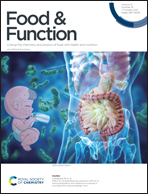
2021 Food & Function
Consumption of blueberries can alter levels of certain beneficial compounds in the blood, potentially contributing to improved cognitive function in older adults.
Clinical Study Blueberry
Blueberry phenolics are associated with cognitive enhancement in supplemented healthy older adults
Rutledge GA, Sandhu AK, Miller MG, Edirisinghe I, Burton-Freeman BB, Shukitt-Hale B
Review Articles
Review articles summarise and critically evaluate the current state of research on a specific topic or field by synthesising multiple primary research studies.
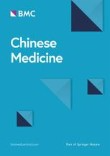
Chinese herbal medicine for gout: a review of the clinical evidence and pharmacological mechanisms
2020 Feb 12 Chinese Medicine Chi X, Zhang H, Zhang S, Ma K
Compared with chemical drugs like colchicine, eloricoxib and celecoxib, TCM herbs have advantages in slowing down the severity and frequency of attacks, reducing the concentration of uric acid in blood with fewer side effects.
Review Article Arthritis
Effectiveness of Cherries in Reducing Uric Acid and Gout: A Systematic Review
2019 Dec 04 Evidence-Based Complementary and Alternative Medicine Chen PE, Liu CY, Chien WH, Chien CW, Tung TH
Systematic Review Cherry Gout Uric AcidGout patients regularly ingesting cherry extract/juice reported fewer gout flare ups than those patients who did not supplement their diets with cherry products.
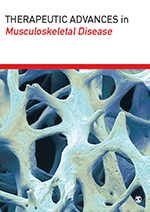
Is there a role for cherries in the management of gout?
2019 Jan Therapeutic Advances in Musculoskeletal Disease Collins MW, Saag KG, Singh JA
Review Article Cherry Uric Acid Gout Bone Formation AntioxidantCherries and their products have antioxidant properties, the capacity to inhibit the acute inflammatory response to urate crystals, and the ability to decrease bone resorption that is characteristic of gouty bone erosions.

Update on the Clinical Effect of Acupuncture Therapy in Patients with Gouty Arthritis: Systematic Review and Meta-Analysis
2016 Oct 16 Evidence-Based Complementary and Alternative Medicine Lu W, Zhang J, Lv Z, Chen A
This review concluded that acupuncture could further improve the clinical effectiveness and decrease uric acid and pain compared with western medicine. The risk of adverse events was lower in acupuncture compared with western medicine.
Systematic Review Meta-Analysis ArthritisChinese herbal medicine for gout: a systematic review of randomized clinical trials
2013 May 11 Clinical Rheumatology Li XX, Han M, Wang YY, Liu JP
Systematic Review Arthritis GoutChinese herbal medicine may help in functional recovery in gout patients, while safely controlling serum uric acid level and inflammation severity.
Clinical Trials
Clinical trials are research studies that involve people and are conducted to evaluate the safety and efficacy of new treatments or interventions, such as drugs, medical devices, or behavioural therapies.

Effects of luteolin-rich chrysanthemum flower extract on purine base absorption and blood uric acid in Japanese subjects
2022 Jan 10 Functional Foods in Health and Disease Takara T, Yamamoto K, Suzuki N, Yamashita S, Iio S, Kakinuma T, et al.
Randomised Controlled Trial Uric Acid Chrysanthemum LuteolinA daily dose of Chrysanthemum flower extract was found to significantly reduce serum uric acid levels, potentially improving hyperuricemia.

Blueberry phenolics are associated with cognitive enhancement in supplemented healthy older adults
2021 Jan Food & Function Rutledge GA, Sandhu AK, Miller MG, Edirisinghe I, Burton-Freeman BB, Shukitt-Hale B
Clinical Study Randomised Controlled Trial BlueberryConsumption of blueberries can alter levels of certain beneficial compounds in the blood, potentially contributing to improved cognitive function in older adults.

A 12-Week, Multicenter, Randomized, Double-Blind, Placebo-Controlled Clinical Trial for Evaluation of the Efficacy and Safety of DKB114 on Reduction of Uric Acid in Serum
2020 Dec 10 Nutrients Park YH, Kim DH, Lee JS, Jeong HI, Lee KW, Kang TH
Randomised Controlled Trial Chinese Cinnamon Gout Uric Acid HyperuricemiaDKB114, a mixture of Linn flower extract, effectively reduces serum uric acid level, suggesting its potential as a dietary supplement for hyperuricemia treatment.
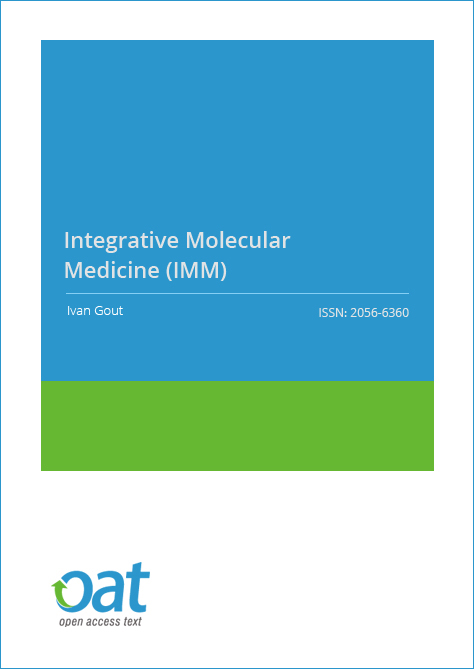
Luteolin-rich chrysanthemum flower extract suppresses baseline serum uric acid in Japanese subjects with mild hyperuricemia
2017 Jan Integrative Molecular Medicine Hirano M, Takeda S, Hitoe S, Shimoda H
Randomised Controlled Trial Uric Acid Chrysanthemum Luteolin GoutLuteolin, found in chrysanthemum flower extract, can potentially reduce serum uric acid levels, suggesting it may help prevent gout.

Chrysanthemum flower oil inhibits diet-induced serum uric acid elevation in adult male subjects
2015 Jul 28 Nutrafoods Ueda T, Honda S, Morikawa H, Kitamura S, Iwama Y, Nakagawa K
Randomised Controlled Trial Gout Uric Acid ChrysanthemumChrysanthemum flower oil significantly reduces diet-induced elevation of serum uric acid in Japanese males with high baseline levels.
Study Protocols
Published study protocols are detailed plans that outline the objectives, methodology, statistical analyses, and organisation of a research study that have been made publicly available for others to review and use as a reference.
Presentation Slides

Experimental Study
Using grape seed oil in the sardine canning process enhances the lipid nutritional quality and increases the fat, protein, and ash contents.
Bouriga N, Rjiba Bahri W, Mili S, Massoudi S, Quignard JP, Trabelsi M

Traditional Chinese medicine exhibits fewer side effects while effectively controlling inflammation and serum uric acid in gout patients.
Liu ZQ, Sun X, Liu ZB, Zhang T, Zhang LL, Wu CJ

Randomised Controlled Trial
A daily dose of Chrysanthemum flower extract was found to significantly reduce serum uric acid levels, potentially improving hyperuricemia.
Takara T, Yamamoto K, Suzuki N, Yamashita S, Iio S, Kakinuma T, Baba A, Takeda S, Yamada W, Nagata M, Shimoda H

Network Pharmacology
A combination of extracts from chrysanthemum were found to be more effective in treating hyperuricemia and potentially developing anti-hyperuricemic functional foods.
Kim OK, Yun JM, Lee M, Kim D, Lee J

Clinical Study
Consumption of blueberries can alter levels of certain beneficial compounds in the blood, potentially contributing to improved cognitive function in older adults.
Rutledge GA, Sandhu AK, Miller MG, Edirisinghe I, Burton-Freeman BB, Shukitt-Hale B

Randomised Controlled Trial
DKB114, a mixture of Linn flower extract, effectively reduces serum uric acid level, suggesting its potential as a dietary supplement for hyperuricemia treatment.
Park YH, Kim DH, Lee JS, Jeong HI, Lee KW, Kang TH

Systematic Review
Gout patients regularly ingesting cherry extract/juice reported fewer gout flare ups than those patients who did not supplement their diets with cherry products.
Chen PE, Liu CY, Chien WH, Chien CW, Tung TH

Review Article
Cherries and their products have antioxidant properties, the capacity to inhibit the acute inflammatory response to urate crystals, and the ability to decrease bone resorption that is characteristic of gouty bone erosions.
Collins MW, Saag KG, Singh JA

Network Pharmacology
A mixture of Chrysanthemum indicum Linne flower and Cinnamomum cassia significantly mitigates hyperuricemia in rats by inhibiting xanthine oxidase activity and enhancing uric acid excretion.
Lee YS, Son E, Kim SH, Lee YM, Kim OS, Kim DS

Randomised Controlled Trial
Luteolin, found in chrysanthemum flower extract, can potentially reduce serum uric acid levels, suggesting it may help prevent gout.
Hirano M, Takeda S, Hitoe S, Shimoda H

Randomised Controlled Trial
Chrysanthemum flower oil significantly reduces diet-induced elevation of serum uric acid in Japanese males with high baseline levels.
Ueda T, Honda S, Morikawa H, Kitamura S, Iwama Y, Nakagawa K
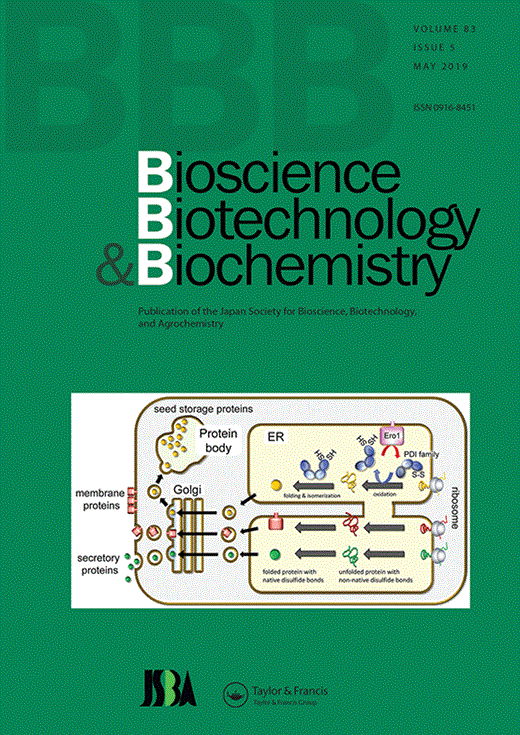
Network Pharmacology
Chrysanthemum flower oil can effectively decrease uric acid levels in rats, by reducing production in the liver and enhancing excretion from the kidney.
Honda S, Kawamoto S, Tanaka H, Kishida H, Kitagawa M, Nakai Y, Abe K, Hirata D

Systematic Review
Chinese herbal medicine may help in functional recovery in gout patients, while safely controlling serum uric acid level and inflammation severity.
Li XX, Han M, Wang YY, Liu JP
Executive Summary
Write an executive summary in the form of a blog article on the topic of "Research into Chinese medicine treatment for Uric Acid" summarising the research below and using language that can be easily understood by patients and avoiding medical jargon using a professional and caring tone of voice.
Write an executive summary in the form of a blog article on the topic of "Researched Chinese medicine treatments for Uric Acid" summarising the research below in an objective and easy to understand way, and using language that can be easily understood by patients. Group the article into Chinese medicine treatments first, followed by nutrition and other treatments. Avoid using medical jargon and use a professional and caring tone of voice.
Write me a concise but easy to understand executive summary on the topic of "Chinese medicine treatments for Uric Acid" based on the following research that I will give you. Your summary should be 2 paragraphs long in Australian English spelling and include references to the studies.
A Experimental Study published in 2022 in the journal Journal of Food Science and Technology found that Using grape seed oil in the sardine canning process enhances the lipid nutritional quality and increases the fat, protein, and ash contents. The researchers employed grape seed oil (GSO) in the canning process of sardines, comparing its effects on the nutritional quality of the canned fish to that of the traditional olive oil (OO). The assessment focused on the quantities of polyphenols, flavonoids, and non flavonoids present in both the GSO and OO, while also considering the levels of polyunsaturated fatty acids (PUFA) specifically linoleic acid in the GSO. The fat, protein, and ash content in the canned sardines were also tracked over a period of 90 days. In the results discussion, it was observed that GSO contained significantly higher levels of polyphenols, flavonoids, and non flavonoids than OO. Additionally, GSO was rich in PUFA, particularly linoleic acid. Following the canning process, canned sardines preserved using GSO demonstrated a significant increase in protein, fat, and ash content. Notably, the use of both GSO and OO resulted in a decrease in both atherogenic and thrombogenic indices to less than 1, implying improved lipid nutritional quality. Critically, levels of thiobarbituric acid and Total volatile base nitrogen remained below critical limits.
A published in 2022 in the journal Journal of Pharmacy and Pharmacology found that Traditional Chinese medicine exhibits fewer side effects while effectively controlling inflammation and serum uric acid in gout patients. In the methodology, the research used herbs as a primary resource, focusing on their phytochemicals. The study examined how these phytochemicals exert anti-inflammatory effects by inactivating the NF-κB and NLRP3 inflammasome, as well as lowering uric acid through the inhibition of xanthine oxidase activity and the up-regulation of URAT1 and GLUT9 expressions. Further, the study explored the relation of changes in intestinal flora and gout, with Chinese herbs acting like prebiotics to modify this flora. In terms of results, the study found an increase in the abundance of certain beneficial bacteria, such as Bifidobacterium, Lactobacillus, Bacteroidetes, and Prevotella, and a decrease in Proteus and the Firmicutes/Bacteroidetes ratio post traditional Chinese medicine treatment. The alterations in the intestinal flora led to changes in its metabolites, which eventually impacted inflammatory signaling pathways, regulating gene expressions and suppressing xanthine oxidase activity. The study also observed the relation between the disruption of the intestinal barrier and the onset of gout.
A Randomised Controlled Trial published in 2022 in the journal Functional Foods in Health and Disease found that A daily dose of Chrysanthemum flower extract was found to significantly reduce serum uric acid levels, potentially improving hyperuricemia. In the methodology, two studies were conducted where 44 healthy Japanese men and women with slightly elevated serum uric acid levels were split into two groups, active and placebo, using a randomized computerized system. The active group received 100mg of Chrysanthemum flower extract containing 1mg of luteolin. In the first study, purine naturally found in food was ingested alongside the flower extract, and the participants' serum uric acid levels were measured over time. In the second study, the extract or a placebo was taken daily over 12 weeks. Changes in uric acid levels were the primary outcome, and blood, urine, and body parameters were checked to confirm the safety of the extract. For the results, in the first study, there were no significant differences found in serum uric acid levels between the group that consumed the extract and the placebo group following a purine-rich meal. However, in the second study spanning 12 weeks, the group that took the Chrysanthemum flower extract had significantly lower uric acid levels than the placebo group. Safety tests showed no adverse effects from taking the extract.
A Network Pharmacology published in 2021 in the journal Plants found that A combination of extracts from chrysanthemum were found to be more effective in treating hyperuricemia and potentially developing anti-hyperuricemic functional foods. The methodology used in this study involved treating human liver cancer cells, mouse renal proximal tubule cells and hyperuricemic mice with uric acid extracted from two different plants, specifically L. (Ci) and Siebold and Zucc. (Co). It was found that the extracts from these two plants, both individually and in combination, suppressed the activity of certain enzymes involved in uric acid metabolism and influenced the expression of corresponding proteins. In discussing the results, the study identified that the combined effect of these two extracts was significantly stronger in suppressing uric acid accumulation compared to using each extract on its own. This was evidenced by an increased excretion of waste products associated with uric acid metabolism when using the combination of Ci and Co. There was also a decrease in the expression of certain proteins that facilitate uric acid accumulation. Therefore, the data suggests that a mixture of Ci and Co extracts could be effective in developing functional foods to combat hyperuricemia.
A Clinical Study published in 2021 in the journal Food & Function found that Consumption of blueberries can alter levels of certain beneficial compounds in the blood, potentially contributing to improved cognitive function in older adults. The research method involved a study on 38 healthy older adults between 60 to 75 years of age, over a 90-day period. Participants were randomly assigned to two groups – a blueberry group and a control group. The blueberry group received 24 grams of freeze-dried blueberries, equivalent to a cup of fresh berries, every day, while the control group received no treatment. Blood samples were taken from the subjects before breakfast and two hours post-breakfast, on the start day, the 45th day and the 90th day. Additionally, the study subjects also took cognitive tests on these days. Results showed that after 90 days, there were significant changes in the levels of circulating phenolic compounds, including such compounds as hippuric acid, phloroglucinaldehyde and syringic acid, among others, in the blood of those who had consumed blueberries. Moreover, improvements in cognitive functions were observed and these changes were linked to alterations in the concentrations of specific phenolic compounds like ferulic acid-glucuronide, syringic acid, and malvidin-3-galactoside. These results suggest a correlation between daily blueberry consumption, changes in phenolic compounds in the blood, and improvements in brain performance.
A Randomised Controlled Trial published in 2020 in the journal Nutrients found that DKB114, a mixture of Linn flower extract, effectively reduces serum uric acid level, suggesting its potential as a dietary supplement for hyperuricemia treatment. The research employed a randomized, double-blind, placebo-controlled clinical trial conducted across a span of 12 weeks. A total of 80 asymptomatic hyperuricemic subjects (serum uric acid level between 7.0-9.0 mg/dL) were selected and equally split into two groups. One group was administered DKB114, the investigational mixture of extracts, while the other group received a placebo. After six weeks of administration, the levels of serum uric acid were evaluated, revealing no significant difference between the two groups. By the end of the 12th week, however, subjects in the DKB114 group exhibited a noticeably larger decrease in their serum uric acid levels when compared to the placebo group. Additionally, various other health indicators including C-reactive protein and apoprotein B levels showed significant trends favoring DKB114. Further evaluations during the trial included clinical pathological tests, weight measurements and vital signs, and electrocardiogram tests which confirmed the safety of DKB114. No significant harmful effects or differences were detected in comparison to the placebo group. This concludes the positive impact and safe use of DKB114 for patients with elevated serum uric acid levels.
A Systematic Review published in 2019 in the journal Evidence-Based Complementary and Alternative Medicine found that Gout patients regularly ingesting cherry extract/juice reported fewer gout flare ups than those patients who did not supplement their diets with cherry products. The six studies included in this systematic review reported decreases in the incidence and severity of gout following the ingestion of cherries. Gout patients regularly ingesting cherry extract/juice reported fewer gout flare ups than those patients who did not supplement their diets with cherry products. Overall, we observed a positive correlation between the consumption of tart cherry juice and a decrease in serum uric acid concentration.
A Review Article published in 2019 in the journal Therapeutic Advances in Musculoskeletal Disease found that Cherries and their products have antioxidant properties, the capacity to inhibit the acute inflammatory response to urate crystals, and the ability to decrease bone resorption that is characteristic of gouty bone erosions. Phenolics, and more specifically, the anthocyanins found abundantly in cherries, have been linked to the inhibition of IL-6, TNF-α, IL-1β, IL-8, COX-I and COX-II, as well as the downregulation of NFkB-mediated osteoclastogenesis, suggesting that cherries may have the ability to reduce both acute and chronic inflammation that play a role in recurrent gout flares and chronic destructive arthropathy. Additionally, cyanidin-3-glucoside enhanced genes related to osteoblast differentiation, suggesting that anthocyanins may also play a role in bone formation.
A Network Pharmacology published in 2017 in the journal Evidence-Based Complementary and Alternative Medicine found that A mixture of Chrysanthemum indicum Linne flower and Cinnamomum cassia significantly mitigates hyperuricemia in rats by inhibiting xanthine oxidase activity and enhancing uric acid excretion. In this experiment, the authors evaluated the impact of a combined extract from Chrysanthemum indicum Linne flower (CF) and Cinnamomum cassia (CB) on hyperuricemia, a condition associated with excessive uric acid in the bloodstream. The study was conducted on both normal and hyperuricemic rats induced by potassium oxonate. Uric acid levels and renal excretion were primarily measured to analyse the potential antihyperuricemic properties of the CF and CB mix. From the experiment, it was found that the CF and CB blend led to a significant reduction in uric acid levels in both normal and hyperuricemic rats, with the effect being stronger compared to either CF or CB in isolation. Additionally, the mixture caused an increase in uric acid elimination through the kidneys in the hyperuricemic rats, pointing to its potential antihyperuricemic action. It was also discovered that the mixture and its primary components, namely, chlorogenic acid, isochlorogenic acid, coumarin, cinnamaldehyde, trans-cinnamic acid, and o-methoxycinnamaldehyde, mitigated the action of xanthine oxidase (an enzyme that accelerates uric acid production) in vitro. This partial xanthine oxidase inhibition sheds light on the underlying mechanism of the antihyperuricemic effect by the CF and CB mixture.
A Randomised Controlled Trial published in 2017 in the journal Integrative Molecular Medicine found that Luteolin, found in chrysanthemum flower extract, can potentially reduce serum uric acid levels, suggesting it may help prevent gout. The research involved two double-blind placebo-controlled studies examining the impacts of chrysanthemum flower extract enriched with luteolin on serum uric acid levels. In a single-dose study, fasting participants consumed a capsule loaded with the luteolin-rich extract before partaking in a high purine meal, with uric acid levels evaluated over time. The second study involved repeated consumption of the capsule over a 4-week period, with fasting serum uric acid measured before and after consumption. The research found that although luteolin did not significantly affect uric acid levels immediately after consumption, there was an observed decrease in these levels following four weeks of continued ingestion. Most notably, subjects with a baseline uric acid level between 5.5 to 7.0 mg/dL saw a significant reduction after they consumed chrysanthemum flower extract. The trial also established that no adverse effects resulted from the ingestion of the extract.
A Randomised Controlled Trial published in 2015 in the journal Nutrafoods found that Chrysanthemum flower oil significantly reduces diet-induced elevation of serum uric acid in Japanese males with high baseline levels. In the study, a randomised, double-blind, cross-over comparison method was employed. Twenty male individuals from Japan were selected and segregated into two groups, one of which received the chrysanthemum flower oil, while the other group was given a placebo. Blood and urine samples were systematically collected from these individuals and meticulously analyzed with a focus on levels of serum uric acid. The analysis of these samples divulged some noteworthy findings. There was no observed suppression of the diet-induced serum uric acid elevation in those subjects whose baseline serum uric acid values ranged betwixt 5.5 and 8.0 mg/dl when given the chrysanthemum flower oil. However, for those subjects with a baseline serum uric acid level of 7.1 mg/dl or greater, the application of this oil significantly reduced this elevation. Based on these findings, it was concluded that chrysanthemum flower oil indeed has an effective role in reducing uric acid elevation, specifically for Japanese male subjects belonging to the higher baseline bracket.
A Network Pharmacology published in 2014 in the journal Bioscience, Biotechnology, and Biochemistry found that Chrysanthemum flower oil can effectively decrease uric acid levels in rats, by reducing production in the liver and enhancing excretion from the kidney. In this study, the researchers developed a hyperuricemia model by feeding rats a specific chrysanthemum flower oil enriched diet. Hyperuricemia is a condition of elevated uric acid levels which the team sought to decrease. Chrysanthemum flower oil was chosen due to its polyphenol content, substances known to have positive health benefits. By administering this oil orally to rats on this diet, they were able to monitor its impact on the rats' serum uric acid levels. The results showed that the chrysanthemum oil had a significant impact on controlling and reducing uric acid levels. This was achieved through two primary mechanisms. Firstly, there was a demonstrated inhibition of xanthine oxidase activities in the liver. This enzyme plays a crucial role in the conversion process that leads to the creation of uric acid. Secondly, the oil increased uric acid levels in the urine, suggesting greater excretion of it. This was further confirmed by the up-regulation of uric acid transporter genes in the rats' kidneys, which enhances the excretion process.
A Systematic Review published in 2013 in the journal Clinical Rheumatology found that Chinese herbal medicine may help in functional recovery in gout patients, while safely controlling serum uric acid level and inflammation severity. This systematic review evaluated a total of 57 randomized clinical trials on Chinese herbal medicine for gout up to December 2012, involving 4,527 patients. The methodology employed the Cochrane risk of bias tool to assess the quality of these trials and used RevMan 5.2 software to synthesize results. However, the overall quality of these trials was generally poor and none reported on health-related quality of life in patients. Through the trials evaluated, it was found that Chinese herbal medicine may not be significantly more effective than conventional medicines in terms of pain relief. However, when combined with conventional medicines, herbal medicine may exhibit better effectiveness. In trials that reported relief from function limitations, herbal remedies showed improved efficacy over standard treatments. However, there was no evidence to suggest that herbal medicine could prevent recurrence of gout. In closing, the review noted that 25 trials out of 41 found significance in lowering serum uric acid levels through the use of Chinese herbal medicine. Further, herbal medicine seemed more effective in inflammation relief when compared to conventional therapies. Importantly, data suggested the herbal treatments resulted in fewer side reactions as compared to conventional treatment methods.
Moderation Tools
Topic
Sign In
Users not signed in are limited to viewing the 5 most recent items of content.